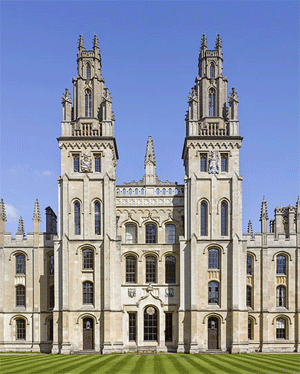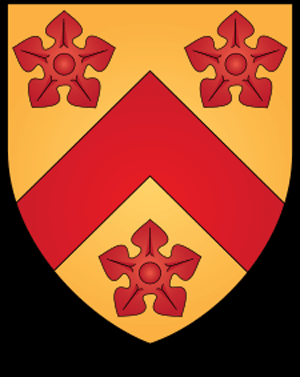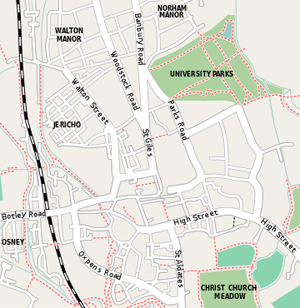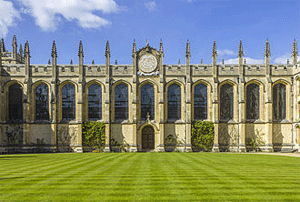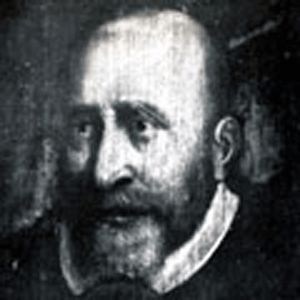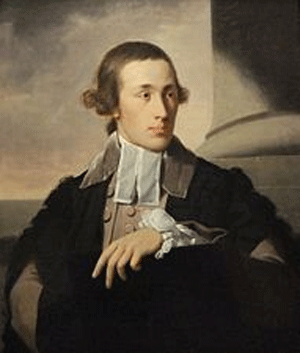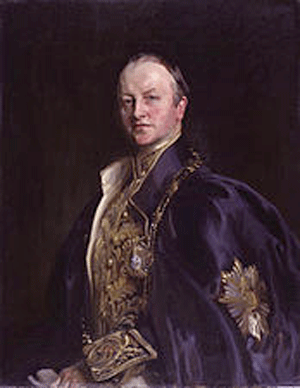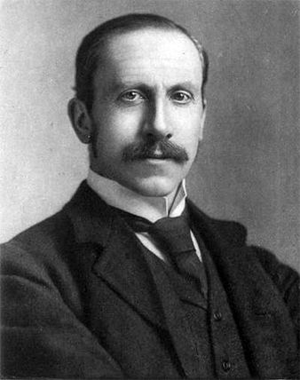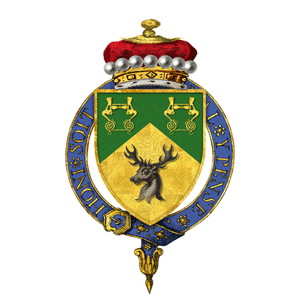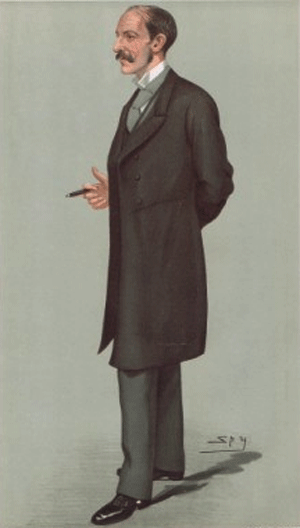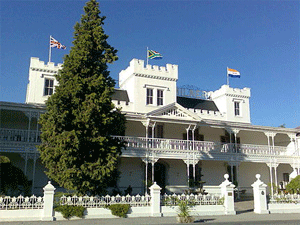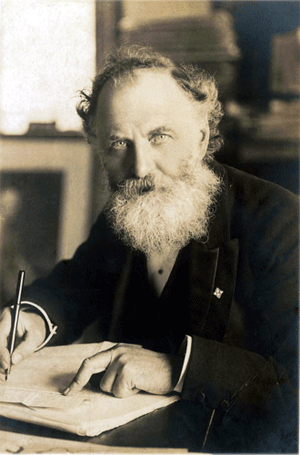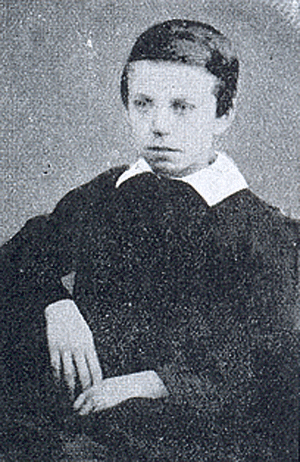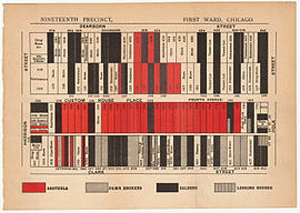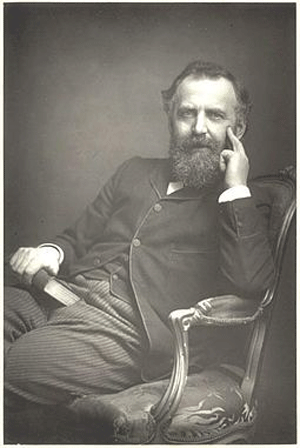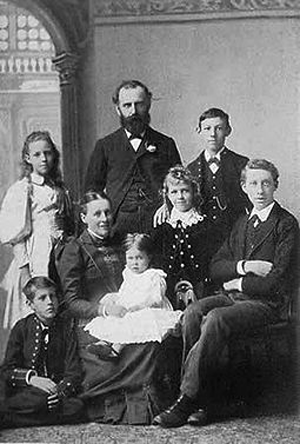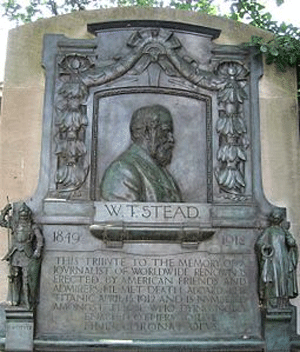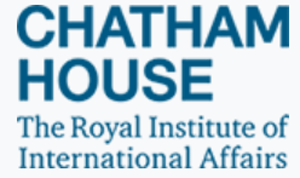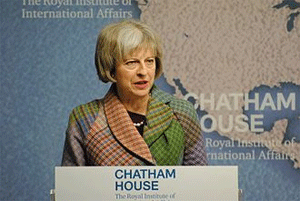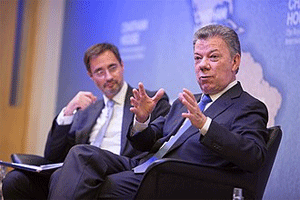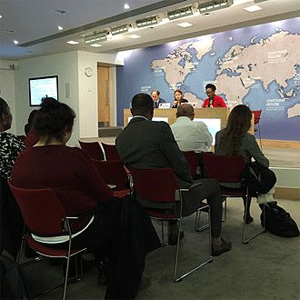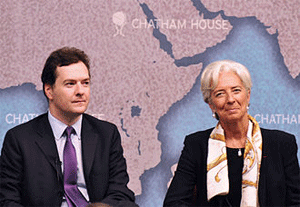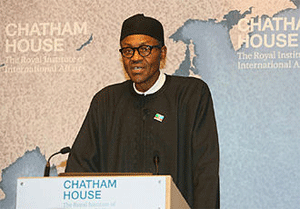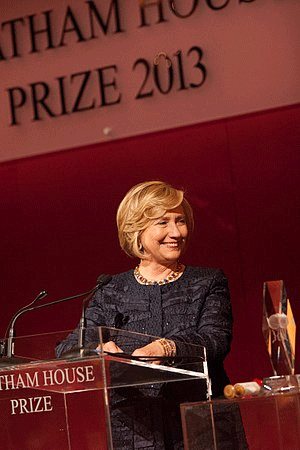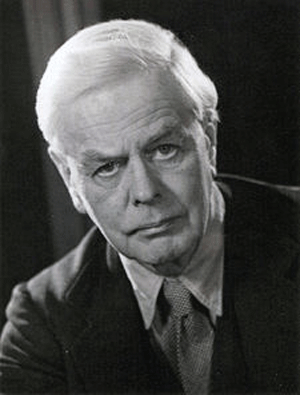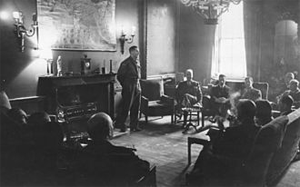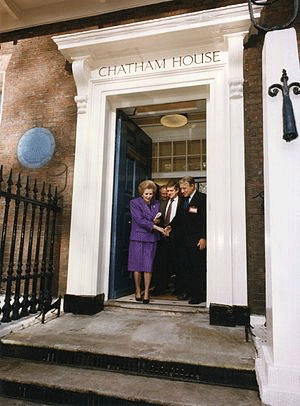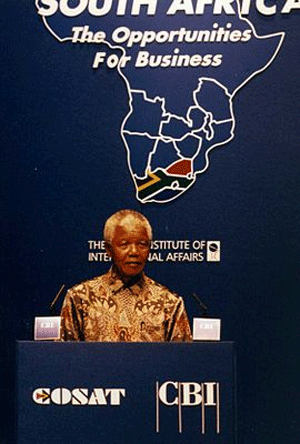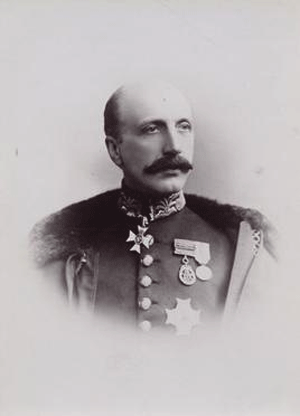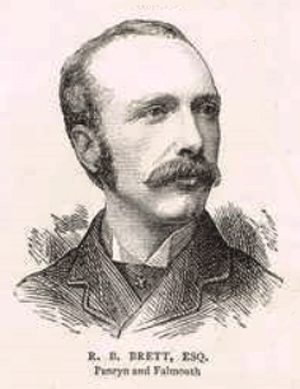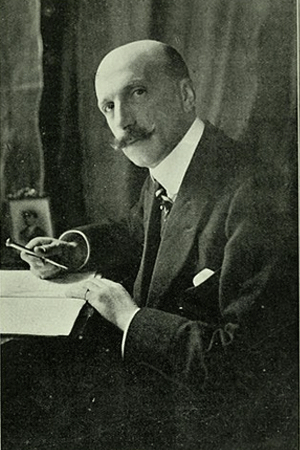Arnold J. Toynbeeby Wikipedia
Accessed: 4/28/19
NOTICE: THIS WORK MAY BE PROTECTED BY COPYRIGHTYOU ARE REQUIRED TO READ
THE COPYRIGHT NOTICE AT THIS LINK BEFORE YOU READ THE FOLLOWING WORK, THAT IS AVAILABLE SOLELY FOR PRIVATE STUDY, SCHOLARSHIP OR RESEARCH PURSUANT TO 17 U.S.C. SECTION 107 AND 108. IN THE EVENT THAT THE LIBRARY DETERMINES THAT UNLAWFUL COPYING OF THIS WORK HAS OCCURRED, THE LIBRARY HAS THE RIGHT TO BLOCK THE I.P. ADDRESS AT WHICH THE UNLAWFUL COPYING APPEARED TO HAVE OCCURRED. THANK YOU FOR RESPECTING THE RIGHTS OF COPYRIGHT OWNERS.
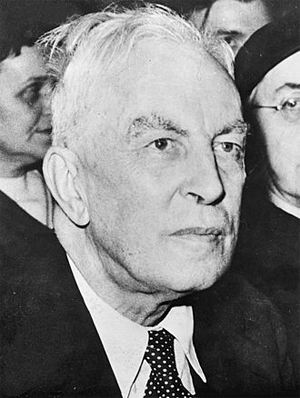
Arnold J. Toynbee
CH FBA
Born Arnold Joseph Toynbee
14 April 1889
London, England, UK
Died 22 October 1975 (aged 86)
York, England, UK
Nationality British
Occupation Historian
Known for Universal history
Spouse(s)
Rosalind Murray
(m. 1913; div. 1946)
Veronica M. Boulter (m. 1946)
Children
Antony Toynbee
Philip Toynbee
Lawrence Toynbee
Relatives
Arnold Toynbee (uncle)
Jocelyn Toynbee (sister)
Academic background
Alma mater Balliol College, Oxford
Academic work
Institutions Balliol College, Oxford
King's College, London
London School of Economics
Royal Institute of International Affairs
Notable works A Study of History
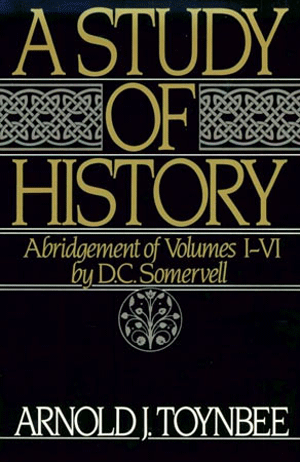 Somervell's abridgement of Toynbee's magnum opus
Somervell's abridgement of Toynbee's magnum opusArnold Joseph Toynbee, CH, FBA (/ˈtɔɪnbi/; 14 April 1889 – 22 October 1975) was a British historian, philosopher of history, author of numerous books and research professor of international history at the London School of Economics and King's College in the University of London. Toynbee in the 1918–1950 period was a leading specialist on international affairs.
He is best known for his 12-volume A Study of History (1934–1961). With his prodigious output of papers, articles, speeches and presentations, and numerous books translated into many languages, Toynbee was a widely read and discussed scholar in the 1940s and 1950s.
BiographyToynbee (born in London on 14 April 1889) was the son of Harry Valpy Toynbee (1861–1941), secretary of the Charity Organization Society, and his wife Sarah Edith Marshall (1859–1939); his sister Jocelyn Toynbee was an archaeologist and art historian. Toynbee was the grandson of Joseph Toynbee, nephew of the 19th-century economist Arnold Toynbee (1852–1883) and descendant of prominent British intellectuals for several generations. He won scholarships to Winchester College and Balliol College, Oxford (Literae Humaniores, 1907-1911),[1] and studied briefly at the British School at Athens, an experience that influenced the genesis of his philosophy about the decline of civilizations.
In 1912 he became a tutor and fellow in ancient history at Balliol College, and in 1915 he began working for the intelligence department of the British Foreign Office. After serving as a delegate to the Paris Peace Conference in 1919 he served as professor of Byzantine and modern Greek studies at the University of London. It was here that Toynbee was appointed to the Koraes Chair of Modern Greek and Byzantine History, Language and Literature at King's College, although he would ultimately resign following a controversial academic dispute with the professoriate of the College.[2][3] From 1921 to 1922 he was the Manchester Guardian correspondent during the Greco-Turkish War, an experience that resulted in the publication of The Western Question in Greece and Turkey.[4] In 1925 he became research professor of international history at the London School of Economics and director of studies at the Royal Institute of International Affairs in London. He was elected a Fellow of the British Academy (FBA), the United Kingdoms national academy for the humanities and social sciences, in 1937.[5]
His first marriage was to Rosalind Murray (1890–1967), daughter of Gilbert Murray, in 1913; they had three sons, of whom Philip Toynbee was the second. They divorced in 1946; Toynbee then married his research assistant, Veronica M. Boulter (1893-1980), in the same year.[6] He died on 22 October 1975, age 86.
Academic and cultural influence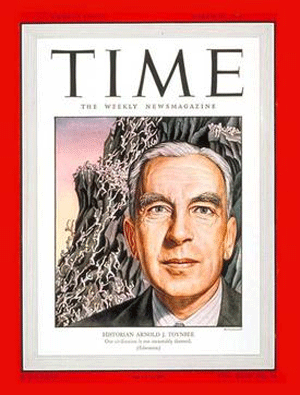 Toynbee on the front cover of Time magazine, 17 March 1947. read the Time article
Toynbee on the front cover of Time magazine, 17 March 1947. read the Time articleMichael Lang says that for much of the twentieth century:
Toynbee was perhaps the world’s most read, translated, and discussed living scholar. His output was enormous, hundreds of books, pamphlets, and articles. Of these, scores were translated into thirty different languages....the critical reaction to Toynbee constitutes a veritable intellectual history of the midcentury: we find a long list of the period’s most important historians, Beard, Braudel, Collingwood, and so on.[7]
In his best-known work, A Study of History, published 1934–1961, Toynbee:
...examined the rise and fall of 26 civilizations in the course of human history, and he concluded that they rose by responding successfully to challenges under the leadership of creative minorities composed of elite leaders.[8]
A Study of History was both a commercial and academic phenomenon. In the U.S. alone, more than seven thousand sets of the ten-volume edition had been sold by 1955. Most people, including scholars, relied on the very clear one-volume abridgement of the first six volumes by Somervell, which appeared in 1947; the abridgement sold over 300,000 copies in the U.S. The press printed innumerable discussions of Toynbee's work, not to mention there being countless lectures and seminars. Toynbee himself often participated. He appeared on the cover of Time magazine in 1947, with an article describing his work as "the most provocative work of historical theory written in England since Karl Marx’s Capital”,[9] and was a regular commentator on BBC (examining the history of and reasons for the current hostility between east and west, and considering how non-westerners view the western world).[10][11]
Canadian historians were especially receptive to Toynbee's work in the late 1940s. The Canadian economic historian Harold Adams Innis (1894–1952) was a notable example. Following Toynbee and others (Spengler, Kroeber, Sorokin, Cochrane), Innis examined the flourishing of civilizations in terms of administration of empires and media of communication.[12]
Toynbee's overall theory was taken up by some scholars, for example, Ernst Robert Curtius, as a sort of paradigm in the post-war period. Curtius wrote as follows in the opening pages of European Literature and the Latin Middle Ages (1953 English translation), following close on Toynbee, as he sets the stage for his vast study of medieval Latin literature. Curtius wrote, "How do cultures, and the historical entities which are their media, arise, grow and decay? Only a comparative morphology with exact procedures can hope to answer these questions. It was Arnold J. Toynbee who undertook the task."[13]
After 1960, Toynbee's ideas faded both in academia and the media, to the point of seldom being cited today.[14][15] However, his work continued to be referenced by classical historians, at least, because "his training and surest touch is in the world of classical antiquity."[16] His roots in classical literature are also manifested by similarities between his approach and that of classical historians such as Herodotus and Thucydides.[17] Comparative history, by which his approach is often categorized, has been in the doldrums.[18] Yet, in Jared Diamond's book Collapse: How Societies Choose to Fail or Succeed there are similarities between Toynbee's "Challenge and Response" theory and Diamond's analysis on how elites make decisions at critical moments. For example, Diamond writes in Collapse that if the elites are insulated from problems in society and not actively engaged, they are more apt to make mistakes. Thus, Diamond may be stating that elites can not mount effective responses to challenges if their knowledge, sympathy, or own self-interest are not sufficiently the same as the broader society.[citation needed]
Political influence in foreign policyWhile the writing of the Study was under way, Toynbee produced numerous smaller works and served as director of foreign research of the Royal Institute of International Affairs (1939–43) and director of the research department of the Foreign Office (1943–46); he also retained his position at the London School of Economics until his retirement in 1956.[8]
Toynbee worked for the Political Intelligence Department of the British Foreign Office during World War I and served as a delegate to the Paris Peace Conference in 1919. He was director of studies at Chatham House, Balliol College, Oxford University, 1924–43. Chatham House conducted research for the British Foreign Office and was an important intellectual resource during World War II when it was transferred to London. With his research assistant, Veronica M. Boulter, Toynbee was co-editor of the RIIA's annual Survey of International Affairs, which became the "bible" for international specialists in Britain.[19][20]
Meeting with Adolf HitlerWhile on a visit in Berlin in 1936 to address the Nazi Law Society, Toynbee was invited to have a private interview with Adolf Hitler, at Hitler's request.[21] Hitler emphasized his limited expansionist aim of building a greater German nation, and his desire for British understanding and cooperation. Toynbee believed that Hitler was sincere and endorsed Hitler's message in a confidential memorandum for the British prime minister and foreign secretary.[22]
RussiaToynbee was troubled by the Russian Revolution, for he saw Russia as a non-Western society and the revolution as a threat to Western society.[23] However, in 1952 he argued that the Soviet Union had been a victim of Western aggression. He portrayed the Cold War as a religious competition that pitted a Marxist materialist heresy against the West's spiritual Christian heritage—a heritage that had already been foolishly rejected by a secularized West. A heated debate ensued; an editorial in The Times promptly attacked Toynbee for treating communism as a "spiritual force".[24]
Greece and the Middle EastToynbee was a leading analyst of developments in the Middle East. His support for Greece and hostility to the Turks during World War I had gained him an appointment to the Koraes Chair of Modern Greek and Byzantine History at King's College, University of London.[2] However, after the war he changed to a pro-Turkish position, accusing Greece's military government in occupied Turkish territory of atrocities and massacres. This earned him the enmity of the wealthy Greeks who had endowed the chair, and in 1924 he was forced to resign the position.
His stance during World War I reflected less sympathy for the Arab cause and took a pro-Zionist outlook. He also expressed support for a Jewish State in Palestine, which he believed had "begun to recover its ancient prosperity" as a result. Toynbee investigated Zionism in 1915 at the Information Department of the Foreign Office, and in 1917 he published a memorandum with his colleague Lewis Namier which supported exclusive Jewish political rights in Palestine. In 1922, however, he was influenced by the Palestine Arab delegation which was visiting London, and began to adopt their views. His subsequent writings reveal his changing outlook on the subject, and by the late 1940s he had moved away from the Zionist cause and toward the Arab camp.
The views Toynbee expressed in the 1950s continued to oppose the formation of a Jewish state, partly out of his concern that it would increase the risk of a nuclear confrontation. However, as a result of Toynbee's debate in January 1961 with Dr. Yaakov Herzog, the Israeli ambassador to Canada, Toynbee softened his view and called on Israel to fulfill its special "mission to make contributions to worldwide efforts to prevent the outbreak of nuclear war."[25][26] In his article "Jewish Rights in Palestine",[27] he challenged the views of the editor of the Jewish Quarterly Review, historian and talmudic scholar Solomon Zeitlin, who published his rebuke, "Jewish Rights in Eretz Israel (Palestine)"[28] in the same issue.[29] Toynbee maintained, among other contentions, that the Jewish people have neither historic nor legal claims to Palestine, stating that the Arab
"population’s human rights to their homes and property over-ride all other rights in cases where claims conflict." He did concede that the Jews, "being the only surviving representatives of any of the pre-Arab inhabitants of Palestine, have a further claim to a national home in Palestine." But that claim, he held, is valid "only in so far as it can be implemented without injury to the rights and to the legitimate interests of the native Arab population of Palestine."[30]
Dialogue with Daisaku IkedaIn 1972, Toynbee met with Daisaku Ikeda, president of Soka Gakkai International (SGI), who condemned the "demonic nature" of the use of nuclear weapons under any circumstances. Toynbee had the view that the atomic bomb was an invention that had caused warfare to escalate from a political scale to catastrophic proportions and threatened humanity's very existence. In his dialogue with Ikeda, Toynbee stated his worry that humankind would not be able to strengthen ethical behavior and achieve self-mastery "in spite of the widespread awareness that the price of failing to respond to the moral challenge of the atomic age may be the self-liquidation of our species."
The two men first met on 5 May 1972 in London. In May 1973, Ikeda again flew to London to meet with Toynbee for 40 hours over a period of 10 days. Their dialogue and ongoing correspondence culminated in the publication of Choose Life, a record of their views on critical issues confronting humanity. The book has been published in 24 languages to date.[31] Toynbee also wrote the foreword to the English edition of Ikeda's best-known book, The Human Revolution, which has sold more than 7 million copies worldwide.[32]
An exhibition celebrating the 30th anniversary of Toynbee and Ikeda's first meeting was presented in SGI's centers around the world in 2005, showcasing contents of the dialogues between them, as well as Ikeda's discussions for peace with over 1,500 of the world's scholars, intellects, and activists. Original letters Toynbee and Ikeda exchanged were also displayed.[33]
In 1984 his granddaughter Polly Toynbee wrote a critical article for The Guardian on meeting Daisaku Ikeda.[34]
Challenge and responseWith the civilizations as units identified, he presented the history of each in terms of challenge-and-response, sometimes referred to as theory about the law of challenge and response. Civilizations arose in response to some set of challenges of extreme difficulty, when "creative minorities" devised solutions that reoriented their entire society. Challenges and responses were physical, as when the Sumerians exploited the intractable swamps of southern Iraq by organizing the Neolithic inhabitants into a society capable of carrying out large-scale irrigation projects; or social, as when the Catholic Church resolved the chaos of post-Roman Europe by enrolling the new Germanic kingdoms in a single religious community. When a civilization responded to challenges, it grew. Civilizations disintegrate when their leaders stopped responding creatively, and the civilizations then sank owing to nationalism, militarism, and the tyranny of a despotic minority. According to an Editor's Note in an edition of Toynbee's A Study of History, Toynbee believed that societies always die from suicide or murder rather than from natural causes, and nearly always from suicide.[35] He sees the growth and decline of civilizations as a spiritual process, writing that "Man achieves civilization, not as a result of superior biological endowment or geographical environment, but as a response to a challenge in a situation of special difficulty which rouses him to make a hitherto unprecedented effort." [36][37]
Toynbee Prize FoundationNamed after Arnold J. Toynbee, the [Toynbee Prize] Foundation was chartered in 1987 'to contribute to the development of the social sciences, as defined from a broad historical view of human society and of human and social problems.' In addition to awarding the Toynbee Prize, the foundation sponsors scholarly engagement with global history through sponsorship of sessions at the annual meeting of the American Historical Association, of international conferences, of the journal New Global Studies and of the Global History Forum.[38]
The Toynbee Prize is an honorary award, recognizing social scientists for significant academic and public contributions to humanity. Currently, it is awarded every other year for work that makes a significant contribution to the study of global history. The recipients have been Raymond Aron, Lord Kenneth Clark, Sir Ralf Dahrendorf, Natalie Zemon Davis, Albert Hirschman, George Kennan, Bruce Mazlish, John McNeill, William McNeill, Jean-Paul Sartre, Arthur Schlesinger, Jr., Barbara Ward, Lady Jackson, Sir Brian Urquhart, Michael Adas, Christopher Bayly, and Jürgen Osterhammel.[39]
In popular culture• Toynbee's ideas feature in the Ray Bradbury short story named "The Toynbee Convector".
• He appears alongside T. E. Lawrence as a character in an episode of The Young Indiana Jones Chronicles, dealing with the post-World War I treaty negotiations at Versailles.
• He receives a brief mention in the Charles Harness classic, The Paradox Men (a working title was Toynbee 22).
• Frederick Buechner mentions him in the 1957 novel The return of Ansel Gibbs.
• Most versions of the Civilization computer game refer to his work as a historian.
• Toynbee receives mention in Pat Frank's post-apocalyptic novel Alas, Babylon.
• A character in the P. Schuyler Miller short story "As Never Was" adopts the name Toynbee "out of admiration for a historian of that name".
• He is mentioned in the Tom Robbins novel, Another Roadside Attraction.
• The Toynbee tiles may be a reference to Toynbee.[citation needed]
Toynbee's works• The Armenian Atrocities: The Murder of a Nation, with a speech delivered by Lord Bryce in the House of Lords (Hodder & Stoughton 1915)
• Nationality and the War (Dent 1915)
• The New Europe: Some Essays in Reconstruction, with an Introduction by the Earl of Cromer (Dent 1915)
• Contributor, Greece, in The Balkans: A History of Bulgaria, Serbia, Greece, Rumania, Turkey, various authors (Oxford, Clarendon Press 1915)
• British View of the Ukrainian Question (Ukrainian Federation of U.S.A., New York, 1916)
• Editor, The Treatment of Armenians in the Ottoman Empire, 1915–1916: Documents Presented to Viscount Grey of Fallodon by Viscount Bryce, with a Preface by Viscount Bryce (Hodder & Stoughton and His Majesty's Stationery Office, 1916)
• The Destruction of Poland: A Study in German Efficiency (1916)
• The Belgian Deportations, with a statement by Viscount Bryce (T. Fisher Unwin 1917)
• The German Terror in Belgium: An Historical Record (Hodder & Stoughton 1917)
• The German Terror in France: An Historical Record (Hodder & Stoughton 1917)
• Turkey: A Past and a Future (Hodder & Stoughton 1917)
• The Western Question in Greece and Turkey: A Study in the Contact of Civilizations (Constable 1922)
• Introduction and translations, Greek Civilization and Character: The Self-Revelation of Ancient Greek Society (Dent 1924)
• Introduction and translations, Greek Historical Thought from Homer to the Age of Heraclius, with two pieces newly translated by Gilbert Murray (Dent 1924)
• Contributor, The Non-Arab Territories of the Ottoman Empire since the Armistice of the 30 October 1918, in H. W. V. Temperley(editor), A History of the Peace Conference of Paris, Vol. VI (Oxford University Press under the auspices of the British Institute of International Affairs 1924)
• The World after the Peace Conference, Being an Epilogue to the “History of the Peace Conference of Paris” and a Prologue to the “Survey of International Affairs, 1920–1923” (Oxford University Press under the auspices of the British Institute of International Affairs 1925). Published on its own, but Toynbee writes that it was "originally written as an introduction to the Survey of International Affairs in 1920–1923, and was intended for publication as part of the same volume".
• With Kenneth P. Kirkwood, Turkey (Benn 1926, in Modern Nations series edited by H. A. L. Fisher)
• The Conduct of British Empire Foreign Relations since the Peace Settlement (Oxford University Press under the auspices of the Royal Institute of International Affairs 1928)
• A Journey to China, or Things Which Are Seen (Constable 1931)
• Editor, British Commonwealth Relations, Proceedings of the First Unofficial Conference at Toronto, 11–21 September 1933, with a foreword by Robert L. Borden (Oxford University Press under the joint auspices of the Royal Institute of International Affairs and the Canadian Institute of International Affairs 1934)
• A Study of History
o Vol I: Introduction; The Geneses of Civilizations
o Vol II: The Geneses of Civilizations
o Vol III: The Growths of Civilizations
(Oxford University Press 1934)
• Editor, with J. A. K. Thomson, Essays in Honour of Gilbert Murray (George Allen & Unwin 1936)
• A Study of History
o Vol IV: The Breakdowns of Civilizations
o Vol V: The Disintegrations of Civilizations
o Vol VI: The Disintegrations of Civilizations
(Oxford University Press 1939)
• D. C. Somervell, A Study of History: Abridgement of Vols I-VI, with a preface by Toynbee (Oxford University Press 1946)
• Civilization on Trial (Oxford University Press 1948)
• The Prospects of Western Civilization (New York, Columbia University Press 1949). Lectures delivered at Columbia University on themes from a then-unpublished part of A Study of History. Published "by arrangement with Oxford University Press in an edition limited to 400 copies and not to be reissued".
• Albert Vann Fowler (editor), War and Civilization, Selections from A Study of History, with a preface by Toynbee (New York, Oxford University Press 1950)
• Introduction and translations, Twelve Men of Action in Greco-Roman History (Boston, Beacon Press 1952). Extracts from Thucydides, Xenophon, Plutarch and Polybius.
• The World and the West (Oxford University Press 1953). Reith Lectures for 1952.
• A Study of History
o Vol VII: Universal States; Universal Churches
o Vol VIII: Heroic Ages; Contacts between Civilizations in Space
o Vol IX: Contacts between Civilizations in Time; Law and Freedom in History; The Prospects of the Western Civilization
o Vol X: The Inspirations of Historians; A Note on Chronology
(Oxford University Press 1954)
• An Historian's Approach to Religion (Oxford University Press 1956). Gifford Lectures, University of Edinburgh, 1952–1953.
• D. C. Somervell, A Study of History: Abridgement of Vols VII-X, with a preface by Toynbee (Oxford University Press 1957)
• Christianity among the Religions of the World (New York, Scribner 1957; London, Oxford University Press 1958). Hewett Lectures, delivered in 1956.
• Democracy in the Atomic Age (Melbourne, Oxford University Press under the auspices of the Australian Institute of International Affairs 1957). Dyason Lectures, delivered in 1956.
• East to West: A Journey round the World (Oxford University Press 1958)
• Hellenism: The History of a Civilization (Oxford University Press 1959, in Home University Library)
• With Edward D. Myers, A Study of History
o Vol XI: Historical Atlas and Gazetteer
(Oxford University Press 1959)
• D. C. Somervell, A Study of History: Abridgement of Vols I-X in one volume, with a new preface by Toynbee and new tables (Oxford University Press 1960)
• A Study of History
o Vol XII: Reconsiderations
(Oxford University Press 1961)
• Between Oxus and Jumna (Oxford University Press 1961)
• America and the World Revolution (Oxford University Press 1962). Public lectures delivered at the University of Pennsylvania, spring 1961.
• The Economy of the Western Hemisphere (Oxford University Press 1962). Weatherhead Foundation Lectures delivered at the University of Puerto Rico, February 1962.
• The Present-Day Experiment in Western Civilization (Oxford University Press 1962). Beatty Memorial Lectures delivered at McGill University, Montreal, 1961.
The three sets of lectures published separately in the UK in 1962 appeared in New York in the same year in one volume under the title America and the World Revolution and Other Lectures, Oxford University Press.
• Universal States (New York, Oxford University Press 1963). Separate publication of part of Vol VII of A Study of History.
• With Philip Toynbee, Comparing Notes: A Dialogue across a Generation (Weidenfeld & Nicolson 1963). "Conversations between Arnold Toynbee and his son, Philip … as they were recorded on tape."
• Between Niger and Nile (Oxford University Press 1965)
• Hannibal's Legacy: The Hannibalic War's Effects on Roman Life
o Vol I: Rome and Her Neighbours before Hannibal's Entry
o Vol II: Rome and Her Neighbours after Hannibal's Exit
(Oxford University Press 1965)
• Change and Habit: The Challenge of Our Time (Oxford University Press 1966). Partly based on lectures given at University of Denver in the last quarter of 1964, and at New College, Sarasota, Florida and the University of the South, Sewanee, Tennessee in the first quarter of 1965.
• Acquaintances (Oxford University Press 1967)
• Between Maule and Amazon (Oxford University Press 1967)
• Editor, Cities of Destiny (Thames & Hudson 1967)
• Editor and principal contributor, Man's Concern with Death (Hodder & Stoughton 1968)
• Editor, The Crucible of Christianity: Judaism, Hellenism and the Historical Background to the Christian Faith (Thames & Hudson 1969)
• Experiences (Oxford University Press 1969)
• Some Problems of Greek History (Oxford University Press 1969)
• Cities on the Move (Oxford University Press 1970). Sponsored by the Institute of Urban Environment of the School of Architecture, Columbia University.
• Surviving the Future (Oxford University Press 1971). Rewritten version of a dialogue between Toynbee and Professor Kei Wakaizumi of Kyoto Sangyo University: essays preceded by questions by Wakaizumi.
• With Jane Caplan, A Study of History, new one-volume abridgement, with new material and revisions and, for the first time, illustrations (Thames & Hudson 1972)
• Constantine Porphyrogenitus and His World (Oxford University Press 1973)
• Editor, Half the World: The History and Culture of China and Japan (Thames & Hudson 1973)
• Toynbee on Toynbee: A Conversation between Arnold J. Toynbee and G. R. Urban (New York, Oxford University Press 1974)
• Mankind and Mother Earth: A Narrative History of the World (Oxford University Press 1976), posthumous
• Richard L. Gage (editor), The Toynbee-Ikeda Dialogue: Man Himself Must Choose (Oxford University Press 1976), posthumous. The record of a conversation lasting several days.
• E. W. F. Tomlin (editor), Arnold Toynbee: A Selection from His Works, with an introduction by Tomlin (Oxford University Press 1978), posthumous. Includes advance extracts from The Greeks and Their Heritages.
• The Greeks and Their Heritages (Oxford University Press 1981), posthumous
• Christian B. Peper (editor), An Historian's Conscience: The Correspondence of Arnold J. Toynbee and Columba Cary-Elwes, Monk of Ampleforth, with a foreword by Lawrence L. Toynbee (Oxford University Press by arrangement with Beacon Press, Boston 1987), posthumous
• The Survey of International Affairs was published by Oxford University Press under the auspices of the Royal Institute of International Affairs between 1925 and 1977 and covered the years 1920–1963. Toynbee wrote, with assistants, the Pre-War Series (covering the years 1920–1938) and the War-Time Series (1938–1946), and contributed introductions to the first two volumes of the Post-War Series (1947–1948 and 1949–1950). His actual contributions varied in extent from year to year.
• A complementary series, Documents on International Affairs, covering the years 1928–1963, was published by Oxford University Press between 1929 and 1973. Toynbee supervised the compilation of the first of the 1939–1946 volumes, and wrote a preface for both that and the 1947–1948 volume.
See also• Carroll Quigley
• Eric Voegelin
• Fernand Braudel
• Oswald Spengler
• Christopher Dawson
• Toynbee tiles
• Will Durant
• World history
Notes1. Orry, Louise (1997). Arnold Toynbee, Brief Lives. Oxford: Oxford University Press. p. 537. ISBN 978-0198600879.
2. "King's College London - Classics at King's".
3. Clogg, Richard (1985). "Politics and the Academy: Arnold Toynbee and the Koraes Chair". Middle Eastern Studies. 21 (4): v–115. JSTOR 4283087.
4. Toynbee, Arnold J. (1922). The Western Question in Greece and Turkey: A Study in the Contact of Civilisations (PDF). London: Constable and Company Ltd.
5. "Toynbee, Arnold Joseph". Who Was Who. Oxford University Press. 1 December 2007. doi:10.1093/ww/9780199540891.001.0001 (inactive 7 March 2019). Retrieved 14 October 2018.
6. McNeill, William H. (1989). Arnold J. Toynbee: A Life. New York: Oxford University Press. p. 124. ISBN 9780195058635.
7. Lang, Michael (December 2011). "Globalization and Global History in Toynbee". Journal of World History. 22 (4): 747–783. doi:10.1353/jwh.2011.0118.(subscription required)
8. "Arnold Toynbee". Encyclopædia Britannica Online Academic Edition. Encyclopædia Britannica, Inc. 6 April 2014. Retrieved 6 April 2014.(subscription required)
9. Kennan, George F. (1 June 1989). "The History of Arnold Toynbee". The New York Review of Books. Retrieved 23 July2014.
10. Montagu, M. F. Ashley, ed. (1956). Toynbee and History: Critical Essays and Reviews. Boston: Porter Sargent. p. vii.
11. "The Psychology of Encounters—Arnold Toynbee: The World and the West: 1952". BBC Radio 4. The Reith Lectures. 14 December 1952. Retrieved 8 April 2014.
12. Massolin, Philip Alphonse (2001). Canadian Intellectuals, the Tory Tradition, and the Challenge of Modernity, 1939–1970. University of Toronto Press. p. 162. ISBN 978-0802035097.
13. Curtius, Ernst Robert (1953). European Literature and the Latin Middle Ages. Princeton University Press. ISBN 978-0691018997.
14. McIntire, C. T.; Perry, Marvin, eds. (1989). Toynbee: Reappraisals. University of Toronto Press. ISBN 978-0802057853.
15. Perry, Marvin (1996). Arnold Toynbee and the Western Tradition. American University Studies—5—Philosophy. 169. New York: Peter Lang. ISBN 978-0820426716.
16. Gruen, Erich S., ed. (1970). "Rome on the Brink of Expansion". Imperialism in the Roman Republic. European Problem Studies. Holt, Rinehart and Winston. Intro, page 10. ISBN 978-0-030-77620-5.
17. "Is a History of Humanity Possible?". University of Oxford History Podcasts. Retrieved 1 July 2014.
18. Cohen, Deborah (Fall 2001). "Comparative History: Buyer Beware" (PDF). GHI Bulletin. No. 29: 23–33. Archived from the original (PDF) on 28 March 2013. Retrieved 8 April 2014.
19. McNeill, William H. (1989). Arnold J. Toynbee: A Life. New York: Oxford University Press. ISBN 9780195058635.
20. Brewin, Christopher (1995). "Arnold Toynbee, Chatham House, and Research in a Global Context". In Long, David; Wilson, Peter (eds.). Thinkers of the Twenty Years' Crisis: Inter-War Idealism Reassessed. Oxford University Press. pp. 277–302. ISBN 9780198278559. Retrieved 11 April 2014.
21. Brody, J. Kenneth (1 October 1999). The Avoidable War—Volume 2: Pierre Laval and the Politics of Reality, 1935–1936. Transaction Publishers. ISBN 978-0765806222.
22. McNeill, William H. (1989). Arnold J. Toynbee: A Life. New York: Oxford University Press. Chapter 8. ISBN 9780195058635.
23. Paquette, Gabriel B. (June 2000). "The Impact of the 1917 Russian Revolutions on Arnold J. Toynbee's Historical Thought, 1917–34". Revolutionary Russia. 13 (1): 55–80. doi:10.1080/09546540008575717.
24. McNeill, William H. (1989). Arnold J. Toynbee: A Life. New York: Oxford University Press. pp. 223–4. ISBN 9780195058635.
25. Friedman, Isaiah (Spring 1999). "Arnold Toynbee: Pro-Arab or Pro-Zionist?". Israel Studies. 4 (1): 73–95. doi:10.1353/is.1999.0019. Retrieved 11 April 2014.(subscription required)
26. "This is how we ruined Toynbee's theory". Haaretz. 24 January 2007. Retrieved 19 December 2014.
27. Toynbee, Arnold J (1961). "Jewish Rights in Palestine". The Jewish Quarterly Review. 52 (1): 1–11. doi:10.2307/1453271. JSTOR 1453271.
28. Zeitlin, Solomon (1961). "Jewish Rights in Eretz Israel (Palestine)". The Jewish Quarterly Review. 52 (1): 12–34. doi:10.2307/1453272. JSTOR 1453272.
29. Jewish Rights in Palestine (pp. 1-11); Arnold J. Toynbee; DOI: 10.2307/1453271 Stable URL:
https://www.jstor.org/stable/145327130. "Prof. Toynbee Rebuked by U.S. Scholar for Renewed Attack on Jews". December 1961.
31. "Choose Life—Arnold Toynbee and Daisaku Ikeda" Exhibition Opens in Hiroshima". Soka Gakkai International. 23 July 2005. Archived from the original on 21 September 2013. Retrieved 13 April 2014.
32. Ikeda, Daisaku (2004). The Human Revolution. Santa Monica: World Tribune Press. Preface. ISBN 978-0915678778.
33. "Thirtieth Anniversary of Toynbee-Ikeda Dialogue". SGI Quarterly. January 2003. Retrieved 13 April 2014.
34. Toynbee, Polly (19 May 1984). "The Value of a Grandfather Figure". Manchester Guardian.
35. Arnold J. Toynbee (1947). A Study of History: Abridgement of Volumes I to VI. Oxford University Press. p. 273. ISBN 9780199826698.
36. Graeme Snooks (2002). The Laws of History. Taylor & Francis. p. 91. ISBN 9780203452448.
37. Arnold J. Toynbee (1987). A Study of History: Volume I: Abridgement of. Oxford U.P. p. 570. ISBN 9780195050806.
38. "The Toynbee Prize Foundation". Toynbee Foundation. Retrieved 14 April 2014.
39. "The 2017 Toynbee Prize Lecture: "Arnold Toynbee and the Problems of Today" (Jürgen Osterhammel) | Toynbee Prize Foundation". toynbeeprize.org. Retrieved 25 January 2017.
References• William H. McNeill (1989). Arnold J. Toynbee: A Life. Oxford: Oxford University Press. ISBN 978-0-19-506335-6. online from ACLS E-Books (subscription required)
Further reading• Beacock, Ian. Humanist among machines – As the dreams of Silicon Valley fill our world, could the dowdy historian Arnold Toynbee help prevent a nightmare? (March 2016), Aeon
• Ben-Israel, Hedva. "Debates With Toynbee: Herzog, Talmon, Friedman," Israel Studies, Spring 2006, Vol. 11 Issue 1, pp. 79–90
• Brewin, Christopher. "Arnold Toynbee, Chatham House, and Research in a Global Context", in David Long and Peter Wilson, eds. Thinkers of the Twenty Years' Crisis: Inter-War Idealism Reassessed (1995) pp. 277–302.
• Costello, Paul. World Historians and Their Goals: Twentieth-Century Answers to Modernism (1993). Compares Toynbee with H. G. Wells, Oswald Spengler, Pitirim Sorokin, Christopher Dawson, Lewis Mumford, and William H. McNeill
• Friedman, Isaiah. "Arnold Toynbee: Pro-Arab or Pro-Zionist?" Israel Studies, Spring 1999, Vol. 4#1, pp. 73–95
• Hutton, Alexander. "‘A belated return for Christ?’: the reception of Arnold J. Toynbee's A Study of History in a British context, 1934–1961." European Review of History: Revue europeenne d'histoire 21.3 (2014): 405–424.
• Lang, Michael. "Globalization and Global History in Toynbee", Journal of World History 22#4 Dec 2011 pp. 747–783 in project MUSE
• McIntire, C. T. and Marvin Perry, eds. Toynbee: Reappraisals (1989) 254pp
• McNeill, William H. Arnold J. Toynbee: a life (Oxford UP, 1989). The standard scholarly biography.
• Martel, Gordon. "The Origins of World History: Arnold Toynbee before the First World War," Australian Journal of Politics and History, Sept 2004, Vol. 50 Issue 3, pp. 343–356
• Montagu, Ashley M. F., ed. Toynbee and History: Critical Essays and Reviews (1956) online edition
• Paquette, Gabriel B. "The Impact of the 1917 Russian Revolutions on Arnold J. Toynbee's Historical Thought, 1917–34", Revolutionary Russia, June 2000, Vol. 13#1, pp. 55–80
• Perry, Marvin. Arnold Toynbee and the Western Tradition (1996)
• Toynbee, Arnold J. A Study of History abridged edition by D. C. Somervell (2 vol 1947); 617pp online edition of vol 1, covering vols 1–6 of the original; A Study of History online edition
External links• Works by Arnold Toynbee at Project Gutenberg
• Works by or about Arnold J. Toynbee at Internet Archive
• Toynbee bibliography
• Klaus-Gunther Wesseling (1998). "Kircher, Athanasius". In Bautz, Traugott (ed.). Biographisch-Bibliographisches Kirchenlexikon (BBKL) (in German). 13. Herzberg: Bautz. cols. 382–392. ISBN 3-88309-072-7. large bibliography of secondary literature
• Site analysing passages in Toynbee's work
• Arnold Toynbee, The Challenge Hypothesis (1934)
• Newspaper clippings about Arnold J. Toynbee in the 20th Century Press Archives of the German National Library of Economics(ZBW)

